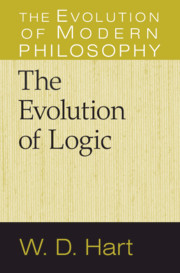One - Cantor’s Paradise
Published online by Cambridge University Press: 05 June 2012
Summary
Cantor’s quarry was the infinite. The mathematics of number had always been about objects of which there are infinitely many, like natural numbers, or objects of which not only are there infinitely many but each is also itself infinite, like real numbers with endless decimal expansions. The infinities of geometry, like the infinity of points on a line or triangles in a plane, had always been there, but the applications of the calculus in geometry made its infinities more salient. The recognition of the infinity of its subject matter was always a reason not to test the conjectures of mathematics by checking the examples but rather to prefer proof. Aristotle urged that the infinite could only ever be potential, like a process with no fixed end, but that completed actual infinite wholes were ruled out. Such views look to countenance possibilities that could not be actual, which sounds contradictory, but even Gauss, the prince of mathematicians, had a horror infiniti. Cantor swam against the tide.
To work out a theory of the infinite per se, Cantor needed to figure out which things are classified as finite or infinite. That is one source of his interest in sets. For this purpose sets should be any old collections, whether unified by having something in common or not, like the Walrus’s shoes and ships and cabbages and kings. Sets should be an utterly general sort, so whether there are infinitely many such and suches can always be re-asked as whether the set of such and suches is infinite. As horses are the kind that divides into stallions and mares, so sets are the kind that divides into finite and infinite.
- Type
- Chapter
- Information
- The Evolution of Logic , pp. 1 - 30Publisher: Cambridge University PressPrint publication year: 2010

